Boston Terrier vs French Bulldog: 7 key differences, according to a vet
Which compact and charming canine is right for you when comparing Boston Terrier vs French Bulldog?
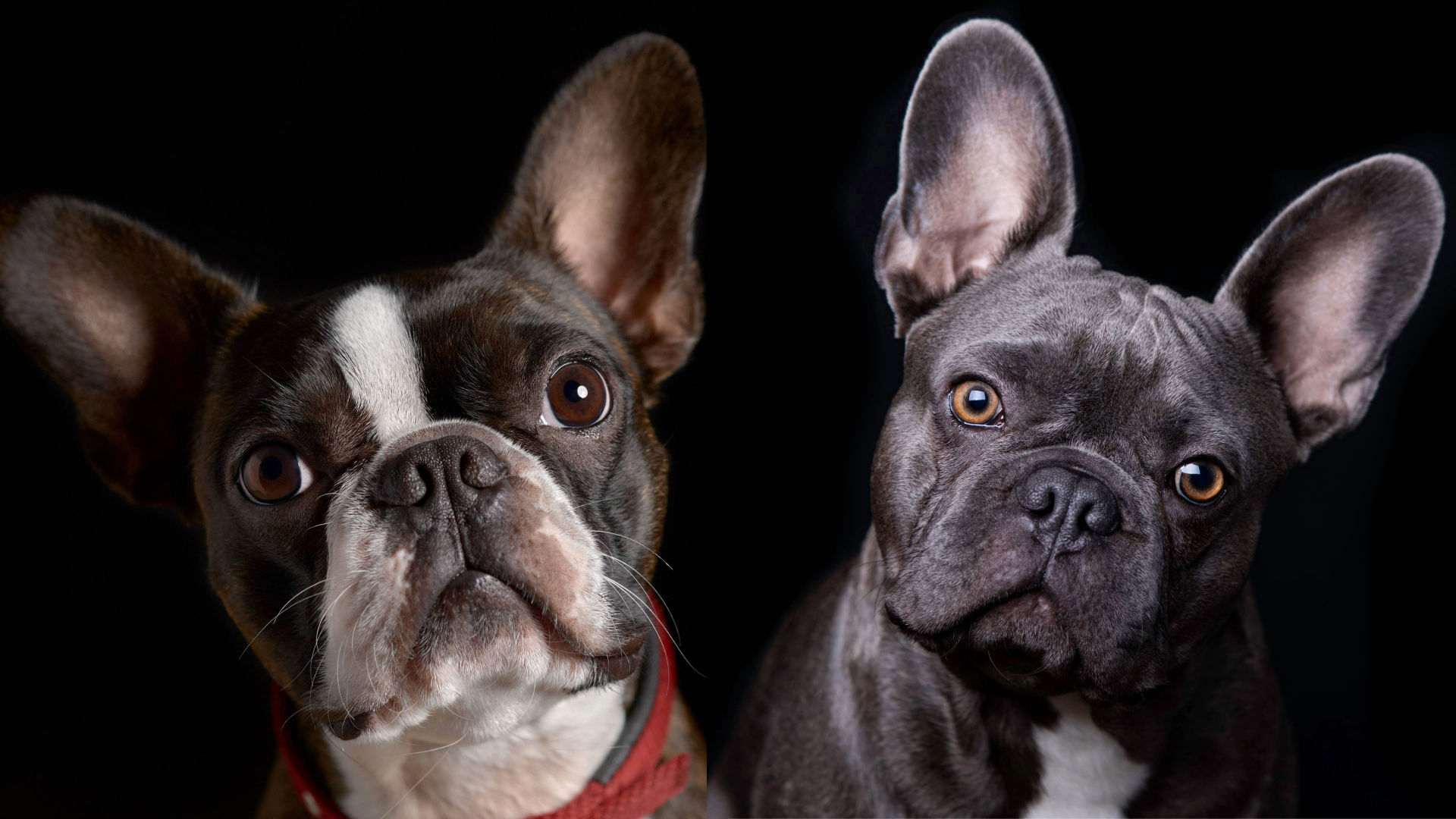
When it comes to the Boston Terrier vs the French Bulldog, they may be different breeds, but there's certainly no separating them when it comes to the cuteness factor!
Nicknamed 'America's Gentleman', thanks to their tuxedo-style coat that always make them look like they're dressed in their Sunday best, the Boston Terrier is a friendly, affectionate and lively little dog who enjoys a mix of exercise, play and lazy evenings snuggled up on the couch with their humans.
The French Bulldog is the most popular dog breed in the US and it's not hard to see why. Mischievous and sassy, they're forever making their owners laugh with their goofy antics, and just like the Boston Terrier, they're laid back and love a good cuddle session.
If you're trying to decide which of these two breeds to welcome into your family, you're in luck because you'll find everything you need to know right here.
With the help of expert vet Dr Rebecca MacMillan we're giving you the scoop on everything from exercise needs and trainability to grooming and health considerations. Read on to find out more...
Size: Boston Terrier vs French Bulldog
Both the Boston Terrier and the French Bulldog are classified as small dog breeds, so they're pretty neck and neck on both the height and weight front.
The French Bulldog has the slight edge on the scales, reaching weights of 28 pounds compared to the Boston Terriers 25 pounds. They're also just a tiny bit taller at 13 inches, whereas the Boston Terrier tends to come in somewhere between 10–12 inches.
Get the best advice, tips and top tech for your beloved Pets
However, as you can see, there's really not a lot in it. If you're looking for a compact dog that's easy to take with you wherever you go, both the Boston Terrier and the French Bulldog are well worth considering.
Appearance: Boston Terrier vs French Bulldog
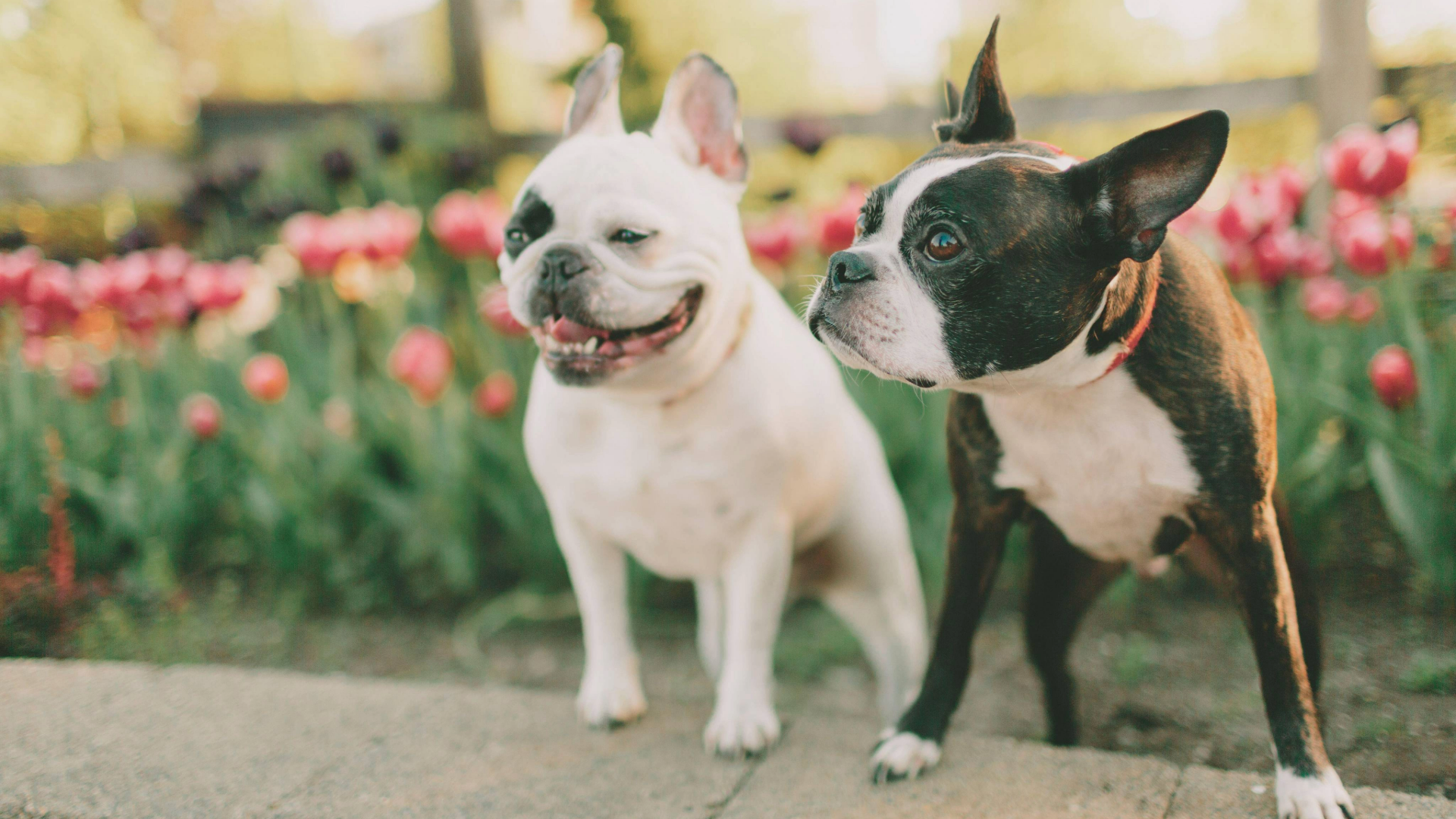
When it comes to appearance, people often get these two breeds mixed up – which is understandable as they do share some similarities. However, there are some easy ways to tell them apart.
The Boston Terrier is characterized by their adorable tuxedo-style coat that comes in black and white, brindle or seal. They have a rounded head, a short and square muzzle, erect pointed ears and a lean build.
In contrast, the French Bulldog does not have a coat with symmetrical tuxedo markings and instead, has a solid coat or a coat containing more patches than the Boston Terrier. They also have bigger and more rounded ears, a square head and a stockier body.
Intelligence and trainability: Boston Terrier vs French Bulldog
For many of us, how easy a particular breed is to train is quite a big factor when it comes to deciding on which dog we're going to welcome into our family.
Some breeds are naturally eager-to-please while others are known for being more stubborn, so we asked Dr MacMillan to weigh in on how intelligent and trainable the Boston Terrier and French Bulldog are.
"Boston Terriers are rated as a bit more intelligent than French Bulldogs, but they are both considered average when compared to the smartest dog breeds," she explains. "This may mean it may take a little longer for them to learn training commands.
“However, the ways that we measure a dog’s intelligence are flawed and don’t consider the higher social and emotional intelligence of dogs like these that were bred for companionship. It is really important to be consistent and don’t let your training slide, just because they look small and cute!"
When it comes to training your dog on your own, Dr MacMillan suggests using lots of positive reinforcement (like praise and the best dog treats) and keeping sessions short. Follow these tips and you'll likely find that both breeds do well when it comes to learning new commands.
Exercise needs: Boston Terrier vs French Bulldog
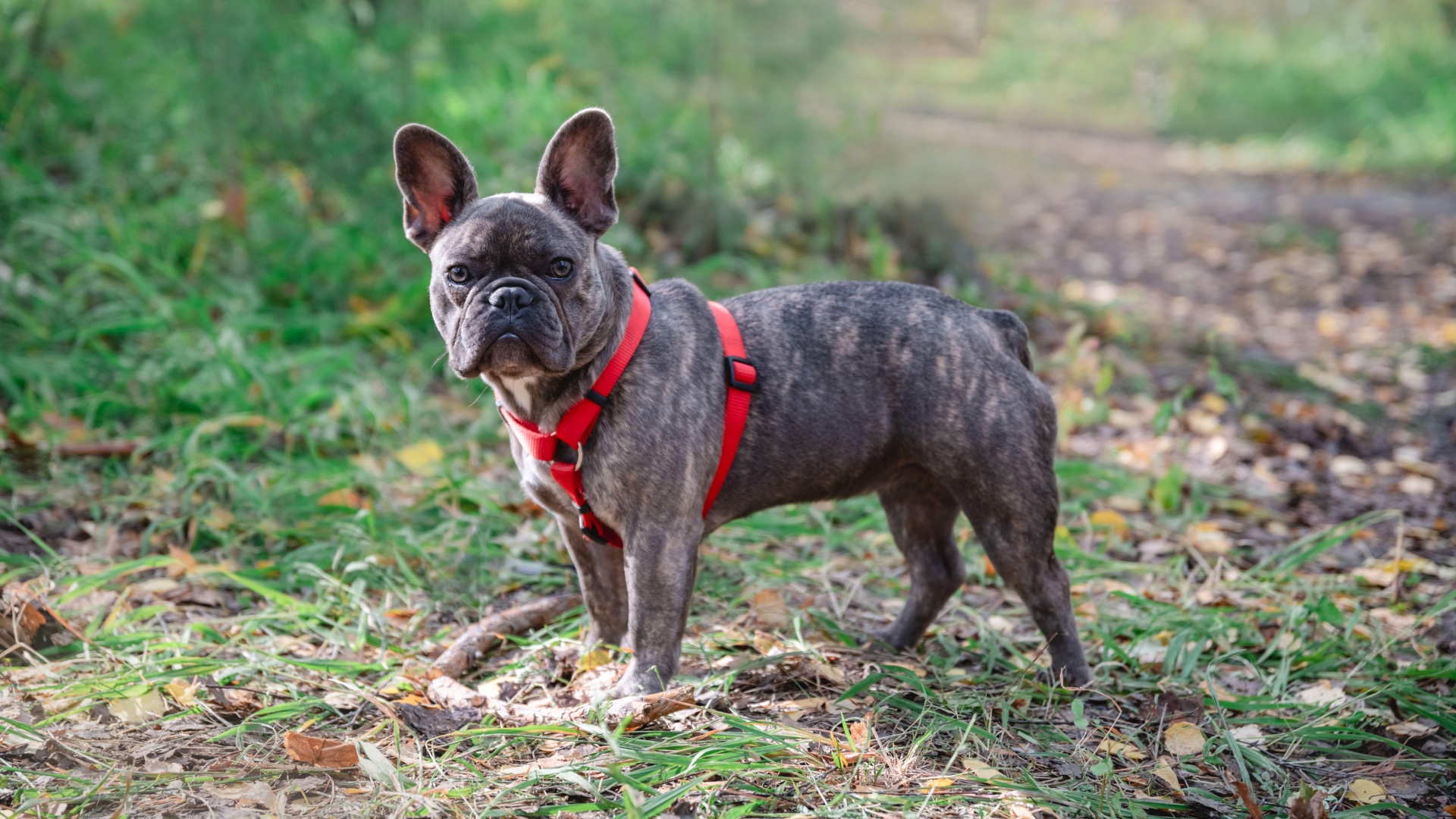
Dogs can make wonderful exercise companions, but some are much more active than others. It's worth taking a breed's activity levels into consideration to ensure you're going to be able to meet their needs.
"Boston Terriers tend to be the more athletic of the two breeds," Dr. MacMillan says. "These dogs need at least 45–60 minutes of good activity per day, including walking and playing."
Some Boston Terrier's also enjoy agility, obedience and flyball – all which are a great ways to workout with your pet and channel their energy.
So, how does the French Bulldog compare?
"French Bulldogs are a bit less energetic but will still need 30–60 minutes of exercise each day depending on their age and health status," explains Dr. MacMillan.
Frenchies enjoy short walks and play sessions with the best dog toys but because they're a flat-faced breed (a brachycephalic breed), they're prone to breathing difficulties, so it's important they don't over-exert themselves.
Grooming: Boston Terrier vs French Bulldog
According to Dr MacMillan, both the Boston Terrier and the French Bulldog have short, easy-to-care-for coats.
"Weekly brushing with one of the best dog brushes should be enough to keep on top of things," she explains.
Aside from ensuring their coat stays in tip-top condition, Dr MacMillan says that both types of dogs are brachycephalic and are wrinkly breeds, though in her experience, this poses less of an issue with Boston Terriers.
However, the skin of both breeds does require additional care.
"The skin folds could need regular cleaning to prevent skin infections from occurring," she explains.
You'll also want to pay close attention to their teeth.
"Their brachycephalic breeding may make dental problems like overcrowding more likely too. Regular and thorough teeth brushing from an early age is recommended to stop dental disease from occurring.”
The best dog toothpaste and a good pet-friendly toothbrush can help with this.
Health considerations: Boston Terrier vs French Bulldog
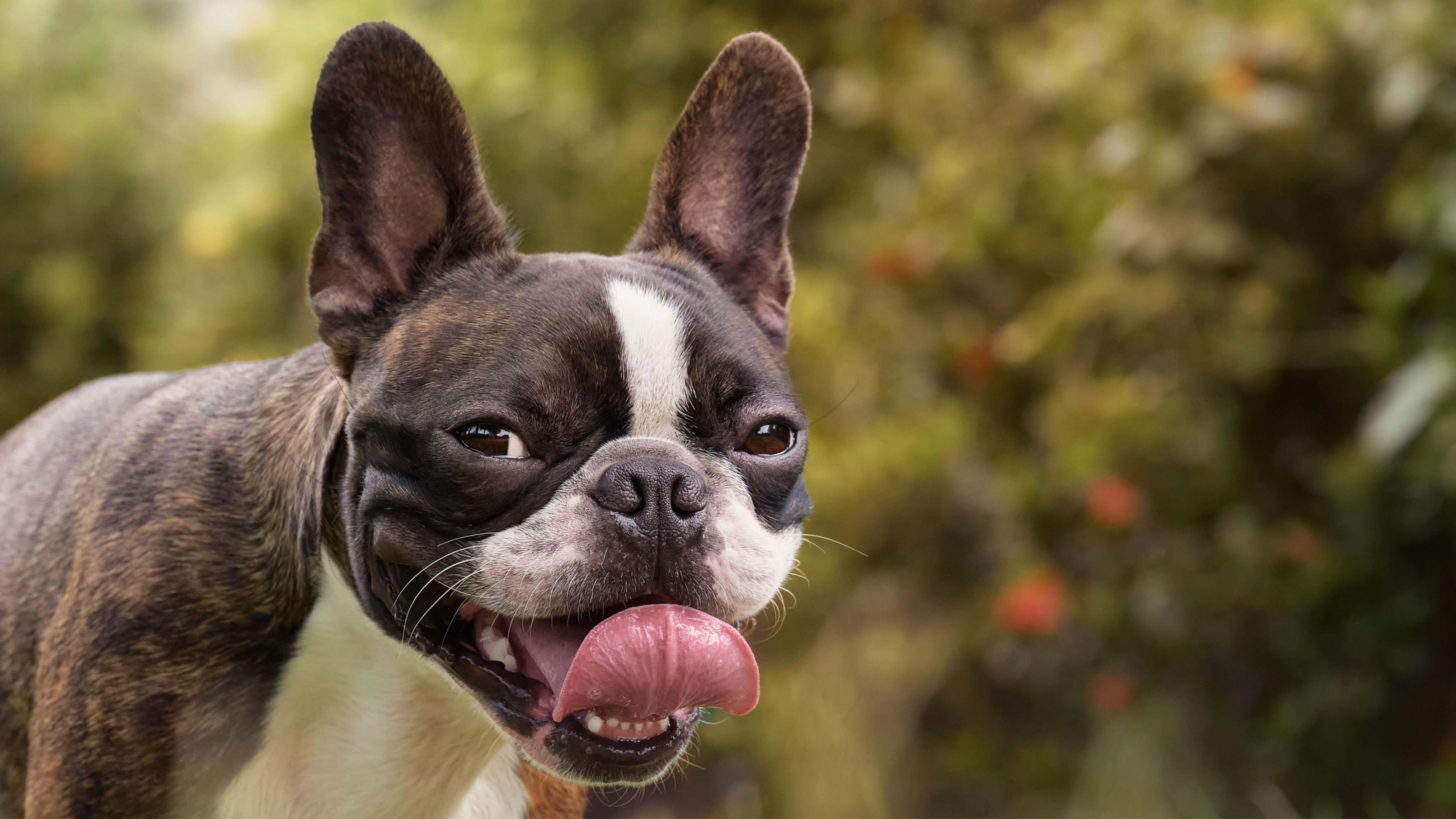
Both the French Bulldog and Boston Terrier are prone to a variety of health issues. That's largely because they're brachycephalic dog breeds, meaning they have flattened faces and compromised airways.
"Narrow nostrils, small windpipes, and overlong soft tissue in the back of their throat can cause exercise intolerance, snoring, and breathing issues," Dr MacMillan explains.
"It also puts them at an increased risk of heatstroke in warm weather. I find that the French Bulldog's features are often more extreme than the Boston Terrier’s, though this can vary between dogs."
Unfortunately, both the French Bulldog and the Boston Terrier are prone to spinal issues, which Dr MacMillan says can lead to weakness, incontinence, and even paralysis.
"Skin allergies are also seen in both breeds which often require long-term management to stop severe flare-ups from occurring," Dr. MacMillan adds. "Inherited eye problems can occur in both dogs, as well as an increased risk of eye ulcers and injuries. This is because their eyes protrude slightly more than we see in breeds with longer noses."
When it comes to which breed is the healthiest, Dr MacMillan says she considers the Boston Terrier to just have the edge but states that "there is not much in it and both are prone to similar problems. I recommend that anyone purchasing either of these breeds strongly consider pet insurance. The chances of your dog developing a health condition are very high."
Owner suitability: Boston Terrier vs French Bulldog
Now that you know a little bit more about the Boston Terrier and the French Bulldog, you may be wondering which breed is the best fit for you and your family. Here's what Dr MacMillan has to say...
"Both dogs would be best suited to an owner who can afford their veterinary care. It is important to make sure that you have a financial plan in place so that you can provide for your dog, should they become unwell.
“Pet insurance is a great way of doing this and may allow you to access some more advanced levels of treatment, for example, referral to a specialist for spinal surgery.
"These dogs are adaptable and would be happy in the city or the countryside, as long as they receive enough exercise. Owners looking for a more laid-back dog should choose the French Bulldog whereas the Boston Terrier would be better suited to a family who wants a dog they take for long walks and have more active playtime with."
Read next: Shorthaired dog breeds we know you'll love and more reasons to love French Bulldogs. Or, read about other dog breed lookalikes
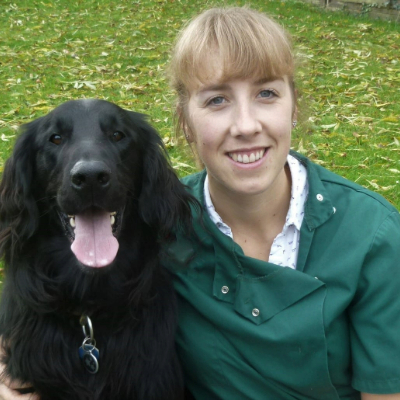
Rebecca is a veterinary surgeon who graduated in 2009 from the Royal Veterinary College in London. She has a wealth of experience in first opinion small animal practice, having done a mixture of day-to-day routine work, on-call emergency duties and managerial roles over the years. Rebecca enjoys medicine in particular and she is proud to have recently achieved a BSAVA postgraduate certificate in small animal medicine (with commendation).
Edited by Megan Milstead.
This page was last updated in May 2025 by Kathryn Williams.

Kathryn is a freelance writer who has been a member of the PetsRadar family since it launched in 2020. Highly experienced in her field, she's driven by a desire to provide pet parents with accurate, timely, and informative content that enables them to provide their fur friends with everything they need to thrive.
Kathryn works closely with vets and trainers to ensure all articles offer the most up-to-date information across a range of pet-related fields, from insights into health and behavior issues to tips on products and training.
When she’s not busy crafting the perfect sentence for her features, buying guides and news pieces, she can be found hanging out with her family (which includes one super sassy cat and a kitten), drinking copious amounts of Jasmine tea and reading all the books.
She has written for a range of publications, including Fit&Well, Top Ten Reviews, LiveScience, Goodto, and Product Hunt.
